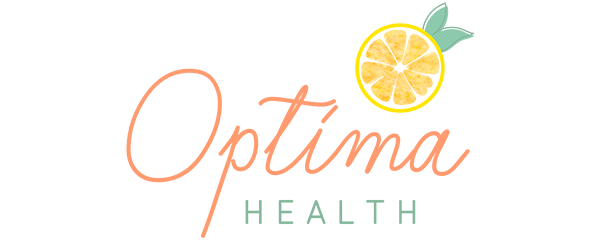According to traditional Ayurveda, Chinese medicine and other types of alternative medicine, food combinations are key to ensuring a balanced, alkaline internal environment. Their belief is that if you combine the wrong foods, your body is at risk of becoming acidic, unbalanced which causes the oh-so-lovely symptoms of bloating, candida, gas and other digestive complaints.
For some, food combining is key for optimal digestion and absorption. For others, it is not so necessary but there are still some important points that can be taken from this concept. Different foods digest at different rates in the body whilst some also require different digestive environments to others.
Many of the food combination beliefs out there lack scientific evidence and better digestion is a very tough objective measure. However, there are some specific nutrient combinations that when combined with their mate work in perfect harmony to ensure efficient digestion and absorption. I will go though a few of them now…

Turmeric + Black Pepper
Piperine, is the major component of black pepper, it is an important alkaloid that gives pepper its pungency. Curcumin, on the other hand, is the major component of turmeric and it is responsible for its yellow-like colour. When piperine is combined with curcumin they work together in perfect harmony. More so, piperine has been shown to increase the bioavailability of curcumin with one human study showing that curcumin bioavailability was increased by 2000% at 45 minutes after administering curcumin orally with piperine.
Ideal combinations: When adding turmeric to your cooking, ensure you add some black pepper too. Likewise, if you’re going down the route of curcumin supplementation, ensure you select one that contains piperine/black pepper*.
Fat Soluble Vitamins + Healthy Fats
The fat soluble vitamins are vitamins A, D, E and K and to be absorbed efficiently in the body, they need to be eaten in the presence of a healthy fat source. When we ingest these fat soluble vitamins they are transported to our small intestine via our stomachs. Healthy fats are required in this process as they act like vehicles in which they help transport the vitamins through the small intestine, into the bloodstream and into the liver, where they are stored until required. Unsaturated fats are the healthy fats and the ones that we want present in the largest quantity in our diet.
Ideal combinations: Add some avocado or some nuts/seeds to your salad and/or some extra virgin olive oil to your dark leafy greens to increase the absorption of vitamin K present in these foods. Luckily, many of the healthy fats contain the fat soluble vitamins – such as dairy products, eggs, almond, olives, cod liver oil and various plant oils, it is just the plant based sources of these four vitamins that need a bit of a helping hand.
Iron + Vitamin C
We know that there are two types of iron; haem iron and non-haem iron. Haem iron comes from animal sources (eg. polutry, lean meat, fish and eggs) whereas non-haem iron comes from plantbased sources (eg. legumes, dark leafy greens and wholegrains).
The body absorbs haem iron a lot more easily than non-haem iron, hence, the importance of the non-haem iron and vitamin C mateship. Combining food sources of non-haem iron with food sources of vitamin C helps transfer the non-haem iron into a form that the body can more readily absorb. More specifically, Vitamin C acts to reduce ferric iron to ferrous iron, which is more soluble and therefore, better absorbed. Vitamin C can also act to overcome some of the negative effects of iron inhibitors and also plays an active role in supporting the body’s iron metabolism by enhancing it solubility
You can read more about iron here.
Ideal combinations: Add a squeeze of lemon to dark leafy greens or make a legume based salad with tomatoes/capsicums/cabbage etc. Oily fish also enhances iron absorption, potentially improving iron status. Likewise, if you’re going down the route of iron supplementation, ensure you select one that contains vitamin C*.
Vitamin D + Calcium
Calcium and vitamin D work hand in hand in the body. Calcium works to build strong bones and teeth and also plays a role in smooth muscle contraction. Vitamin D promotes the gut’s absorption of calcium and helps maintain adequate concentrations of serum calcium and phosphorous to enable good bone health. Hence, maximum calcium absorption only occurs when there is sufficient amounts of vitamin D within the body.
Vitamin D insufficiency can result in thin, brittle or misshapen bones, decreased muscle function and quality and can also predispose to illness such as rickets (soft bones and enlargement of joints) in children and osteomalacia in adults (adult version of rickets).
Ideal combinations: The best source of vitamin D is sunshine as it is naturally present in very few foods. The foods that it is present in mostly include oily fish, namely cod liver oil, salmon, sardines, mackerel, herring and tuna. Some milks are also fortified with vitamin D and can also purchase mushrooms that have been exposed to UV rays and therefore, contain some of the vitamin. Note, it isn’t possible to meet vitamin D requirements through food alone.
Sulforaphanes + Selenium
Sulforaphanes are sulfur containing compounds that when combined with food sources of selenium, work synergistically. The allium family of vegetables (ie. leeks, garlic and onions) as well as the cruciferous family of vegetables (ie. broccoli, cauliflower, Brussels sprouts and cabbage) are all sulfur rich food sources. Selenium is an important mineral, especially when it comes to thyroid health. It is found in foods such as brazil nuts, poultry, eggs, grains and nuts/seeds. When these nutrients are combined, their grand total antioxidant power has a powerful increase.
Ideal combinations: Cook some steamed greens and have with brown rice/pearl barley/couscous and sunflower seeds/walnuts/peanuts. Cook some Brussels sprouts in the pan with garlic and onion and serve with some sliced Brazil nuts.
*I always suggest checking in with your healthcare practitioner before starting any supplementation.
